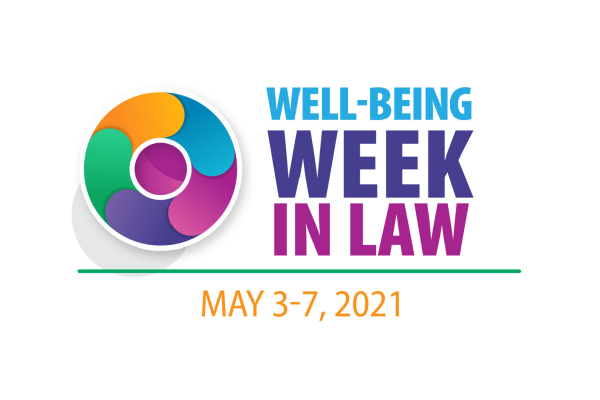New studies on the connection between happiness and money seem to support previous findings about the greater importance of autonomy.
A new study from Wharton demonstrates that “Money matters to happiness — perhaps more than previously thought.” And another, “Happy without money: Minimally monetized societies can exhibit subjective well-being,” funded by the European Research Council, suggests that “high levels of subjective well-being can be achieved with minimal monetization, challenging the perception that economic growth will raise life satisfaction among low income populations.” While the studies might appear contradictory on the surface, previous studies have demonstrated autonomy to be the strongest contributor to happiness, and our social surroundings might contribute to how our perceived autonomy is connected to money.
More Money Matters
Keys to survival that money buys have always been at the foundation of well-being. In Maslow’s hierarchy of needs, the only factors more important than financial security per se and physical safety are our physiological needs for air, water, warmth, and rest — all of which are increasingly dependent on money as well. It isn’t difficult to imagine why it might be challenging to perceive positive emotions while struggling to survive.
And beyond survival, research, including a well-known 2010 study by Nobel laureates Angus Deaton and Daniel Kahneman, has demonstrated that greater income does increase life satisfaction. The Deaton and Kahneman study, “High income improves evaluation of life but not emotional well-being,” looked at two measures of happiness: (1) life satisfaction, which refers an evaluation of life overall and (2) emotional well-being, which is a more fluid measure of mood and was found to plateau at an income of $75,000.
Contrary to Deaton and Kaneman’s “previous influential research,” Wharton’s new study shows that even emotional well-being continues to increase with “no dollar value at which it stopped mattering.” The study used an app to facilitate ‘experience sampling’ with short check-ins at random times to measure evaluative emotional well-being, and also asked about life satisfaction.
The author of Wharton’s study, Matthew Killingsworth, suggests the link between autonomy and happiness explains the link between income and happiness. We might not need a highly monetized society to be happy, but if we’re in a highly monetized society, we need money to feel autonomy. As Penn Today’s announcement explains,
Higher earners are happier, in part, because of an increased sense of control over life, he says. “When you have more money, you have more choices about how to live your life. You can likely see this in the pandemic. People living paycheck to paycheck who lose their job might need to take the first available job to stay afloat, even if it’s one they dislike. People with a financial cushion can wait for one that’s a better fit. Across decisions big and small, having more money gives a person more choices and a greater sense of autonomy.”
Autonomy Matters Most
What Makes Lawyers Happy? A 2015 study from Lawrence S. Krieger with Kennon M. Sheldon shows autonomy is the top factor for happiness in lawyers, like the rest of humans. Attorney income per se was the 7th most influential factor on lawyer happiness, with law school debt (inversely) coming in 8th. Defined as “one’s sense of control,” autonomy isn’t just freedom from being told what to do, but the freedom to do that which one wants to involves financial stability. Relatedness, competence, internal motivation, autonomy support, and intrinsic values ranked 2nd-6th most relevant. You can find a helpful summary of the top three factors here, what Paula Davis refers to as our ‘ABC Needs’ (autonomy, belonging, and competence).
It might be possible to improve our sense of control within the limits of that which we cannot control. Accepting that which we cannot control (popular advice that many of us have prayed for the ability to follow) is a coping strategy that can help us focus on that which we can control, thereby increasing our sense of control. An important lesson from positive psychology is to savor the good and absorb as much joy as we can, even (and especially) when it seems scarce. Still, shifting our perception of reality takes time and energy, and it doesn’t help to ignore difficult realities we face, which might involve efforts as extreme as changing work or home environments and also often involve painfully limited options (especially in a pandemic).
Disparity Matters, Too
No happiness plateau at higher income levels were found in a survey analysis in 2020 by Jean M. Twenge and A. Bell Cooper that looked at trends from 1972 to 2016. One of the researchers suggested that the growing wealth gap (which also fuels racial disparity) may explain why the difference in happiness by income level has grown steadily larger:
There are likely many reasons for these trends. For one, income inequality has grown: The rich have gotten richer, and the poor have gotten poorer. Today the average company CEO makes 271 times the salary of a typical worker, up from 30 times more in 1978. While it was once possible to buy a house and support a family with a high school education, that has become increasingly difficult.
In a society with more income inequality, the gulf between the “haves” and the “have nots” is more stark, with fewer belonging to the middle class. That’s partially because the cost of many key needs, such as housing, education and health care, have outpaced inflation, and salaries haven’t kept up even as workers became more productive.
Related Resources:
The Are Two Kinds of Happy People (The Atlantic, January 2021)
Free & Confidential Consultations:
Lawyers, law students, and judges in Massachusetts can discuss concerns with a licensed therapist, law practice advisor, or both. Find more on scheduling here.




